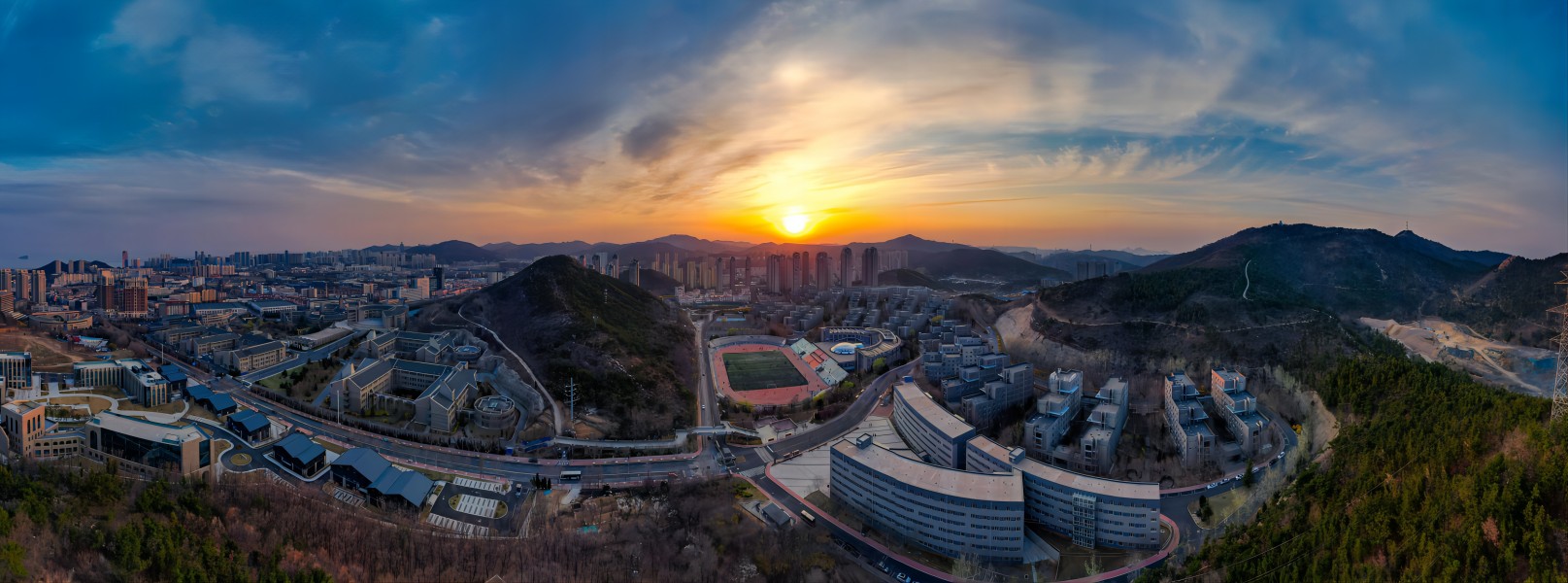Do you still remember the friends from the University of Queensland in Australia who came to the school for IT innovation practice every practice semester before the epidemic? After three years, they came to Dalian Neusoft University of Information again this summer to participate in the 4-week 2023 Start-up China Summer IT Innovation Practice Project with the students from our school. On the morning of June 19th, the opening ceremony was held at our school’s A15 Students’ Office and Venture Office (SOVO). 22 students from the University of Queensland in Australia and 13 students from Dalian Neusoft University of Information participated in this project.
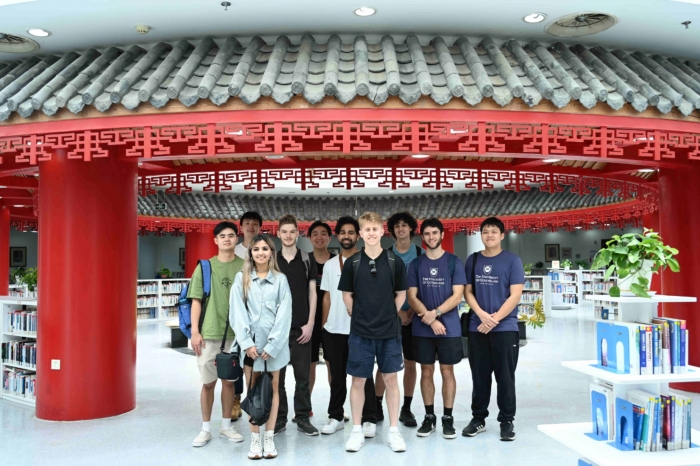
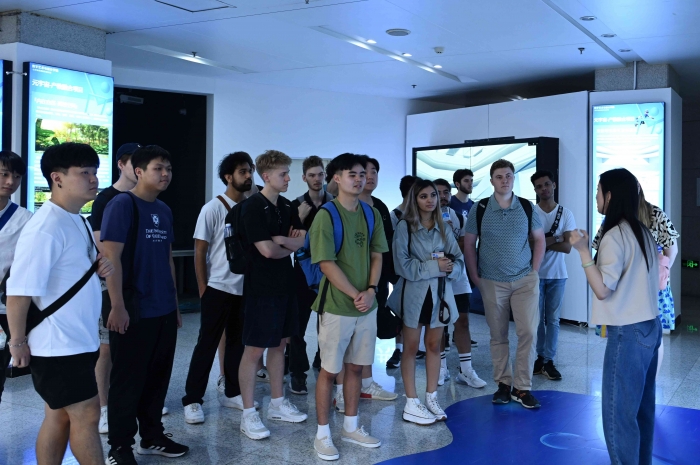
Before the opening ceremony, Australian students visited our school’s library on Software Park campus and experienced the rich cultural atmosphere of combining Chinese and modern styles. Subsequently, they visited the School of Digital Arts and Design at our school and watched the creative works of our teachers and students. Through these visiting activities, not only have Australian students gained a better understanding of our school’s teaching environment and cultural atmosphere, but also deepened cultural exchange and mutual understanding between Chinese and Australian students.
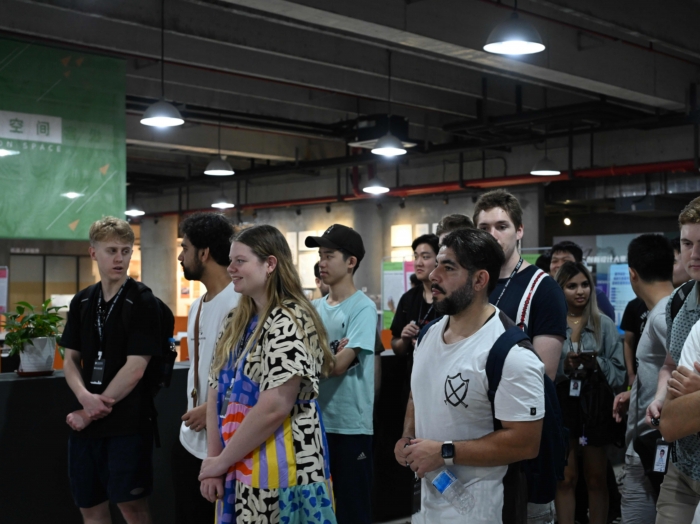
After visiting our university’s SOVO, Chinese and Australian students watched promotional videos of Dalian and our school. These exciting images present the beautiful scenery, development achievements, and unique charm of Dalian, showcasing the charm of Dalian and the unique characteristics of our school.
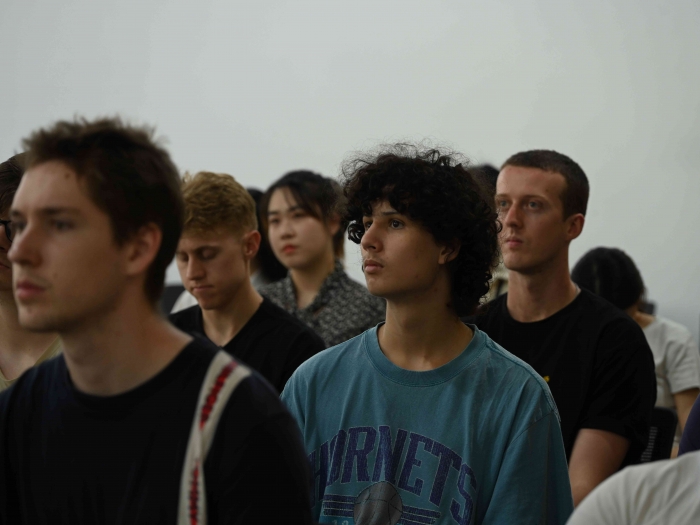
The opening ceremony was held in the A15-103 lecture hall. Our vice president Zhang Wan delivered a speech on behalf of the school and warmly welcomed the students from the University of Queensland who participated in the project. Vice President Zhang Wan reviewed the achievements of past projects. She stated that this year’s project has undergone a comprehensive upgrade, closely following the latest trends such as big data, the Internet of Things, digital twins, and the metaverse. Students will be immersed in a new experience with the theme of “virtual smart cities”. She looks forward to students exploring cutting-edge knowledge in this field. Vice President Zhang Wan encourages students to fully utilize this opportunity and integrate into the vibrant cultural atmosphere of Dalian Neusoft University of Information. She calls on everyone to actively participate, cooperate, and fully devote themselves to the project. She sincerely hopes that students will spend a fulfilling and enjoyable day on the campus of Dalian Neusoft University of Information, harvest lasting memories, and establish lifelong friendships. Finally, Vice President Zhang Wan expressed gratitude to Mr. Richard Thomas for his dedication to the project.
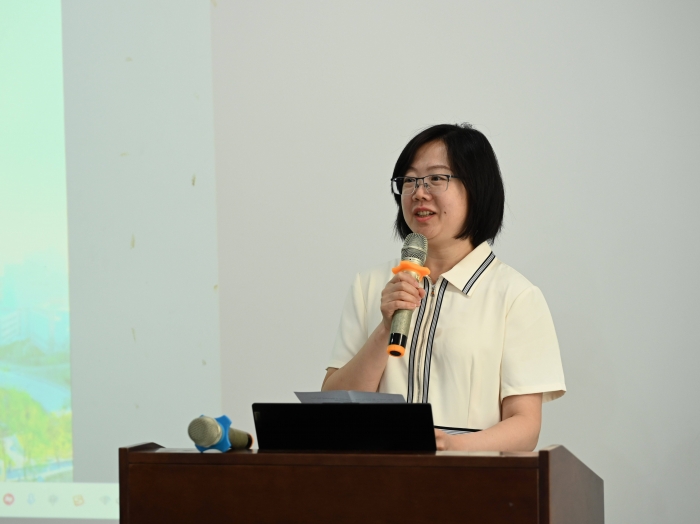
As a representative of the University of Queensland in Australia, Mr. Richard Thomas delivered a speech through online video. He expressed great pleasure at the restart of the project and was pleased with the resumption of the China-Australia exchange project, which was interrupted by the epidemic. He looked forward to promoting exchanges and cooperation between students from China and Australia through this project, and jointly promoting academic and cultural exchanges and development between the two universities.
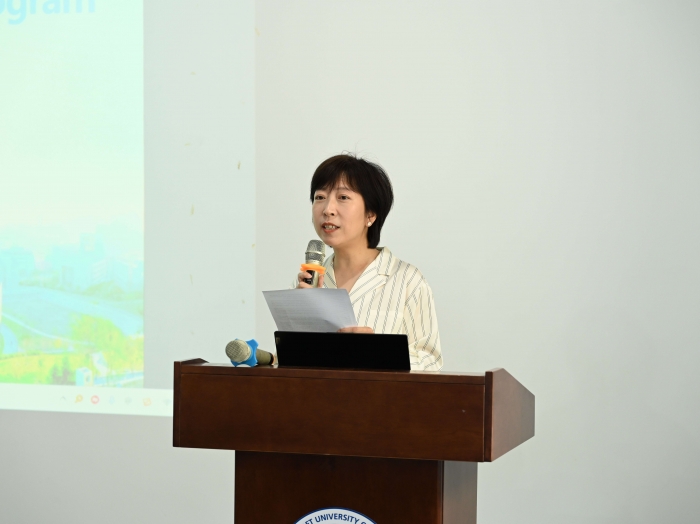
Tian Huiyi, Dean of the School of Innovation and Entrepreneurship, emphasized the importance of innovation and entrepreneurship in cultivating students’ creativity and practical abilities from the perspective of innovation and entrepreneurship education and encouraged students to bravely explore and innovate in projects.
Ren Zheng, a teacher from the School of Software, Ao Ning, a teacher from the School of Innovation and Entrepreneurship, and Ai Huayu, a teacher from the School of International Education, also spoke on stage, outlining their respective majors and language and cultural courses to be taught.
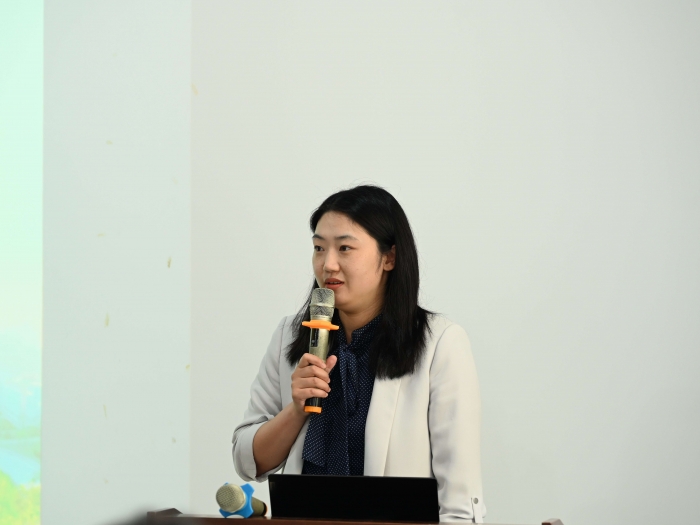
Rong Yidan, Dean of the International School of Education, emphasized the importance of communication in establishing friendship and promoting common development between students from China and Australia at the meeting, hoping that students can fully utilize this opportunity to deepen their understanding and respect each other's cultures.
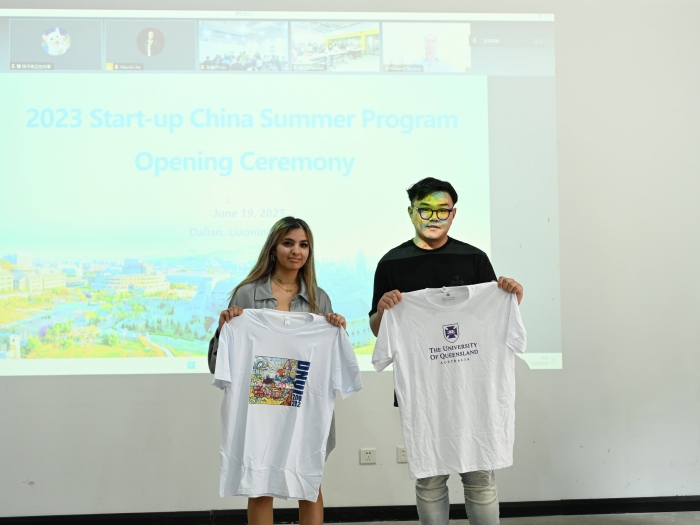
At the end of the school opening ceremony, our student representative Jiang Yunhao, and the student representative from the University of Queensland successively took the stage to deliver a speech. Their speeches were full of sincerity, representing the beginning of friendly exchanges between the students of the two schools. In a happy and enthusiastic atmosphere, student representatives exchanged school commemorative shirts.
The opening ceremony came to an end in a warm and happy atmosphere. The students took a group photo in front of SOVO. In the next four weeks, under the guidance of our school teachers, they will form a Sino-Australian student practice group to study courses such as software development, digital media technology, innovation and entrepreneurship, and Chinese language and culture. They will also work together to complete the design and development of innovation and entrepreneurship projects in line with the theme of this year’s project “Virtual Smart City”. In addition to project-based learning practices, Chinese and Australian students will visit IT companies and cultural and historical attractions in Dalian, Shenyang, and Beijing to deepen their understanding of China and each other through immersive experiential learning, and establish long-term friendships.
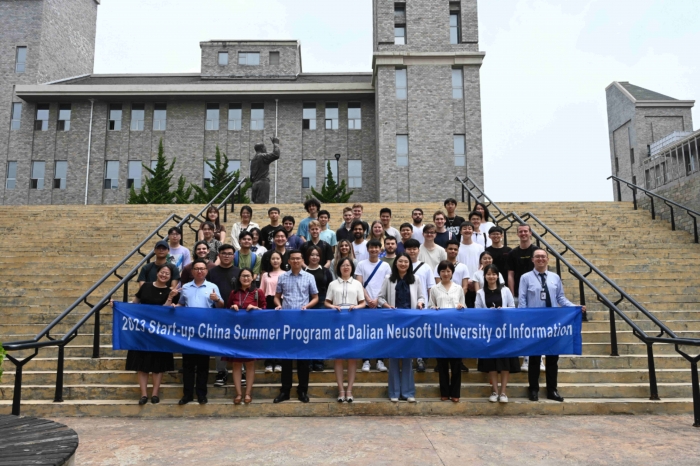
Our school and the University of Queensland in Australia have been collaborating on this project since 2017, and the project has now progressed to its fourth session. 120 Australian students from the University of Queensland and 71 Chinese students from Dalian Neusoft University of Information have participated in the project. In the first three events, students participating in the project generated over 20 innovative ideas for IT products or services through cross-border team tasks and successfully developed product prototypes.

